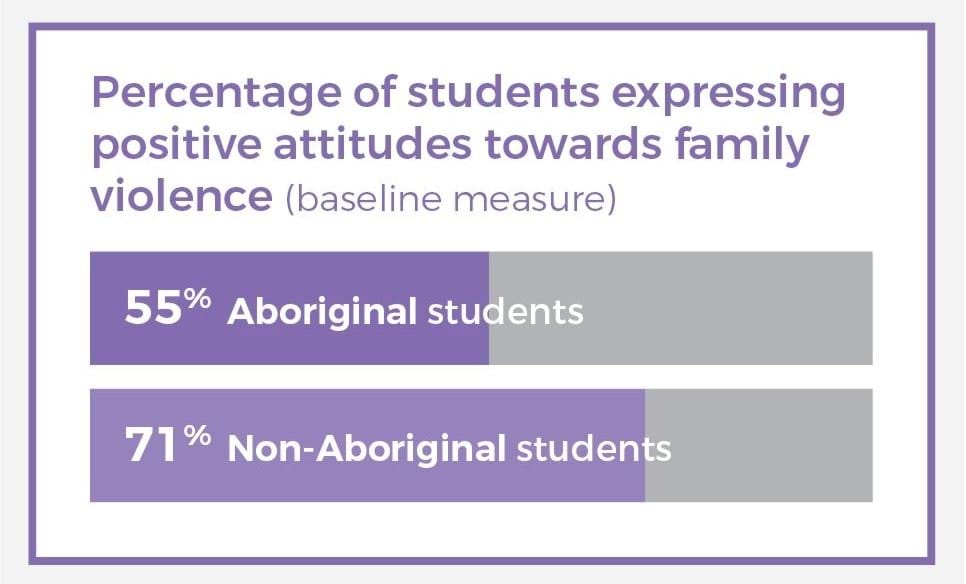The Dhelk Dja (Safe Our Way) Strong Cultures, Strong Peoples, Strong Families Agreement is the major partnership between the Victorian Government and Victoria’s Aboriginal communities to address family violence. Dhelk Dja commits ACCOs and government to work together and be accountable for ensuring Aboriginal people, families and communities are stronger, safer, thriving and free from family violence. The Dhelk Dja Partnership Forum is the governance mechanism to oversee delivery of the agreement, which occurs through the development of and reporting against three-year action plans.
Our report on reform governance found that the forum was seen by many in the family violence sector as an excellent model of dedicated, community-led governance, and identified a number of positive features of its operation. Aboriginal stakeholders consulted for this report noted that over the years there have been several changes in where family violence in Aboriginal communities sits within government, and as a consequence the responsible areas of government do not have the same steadfast relationship with communities that government does through the long-established Aboriginal Justice Forum. Certainly, our observation, having regularly attended both forums, is that government accountability to Dhelk Dja could be strengthened through applying the same strong model of government accountability to Aboriginal communities as through the Aboriginal Justice Forum. For example, justice agencies themselves report on their progress against agreed actions and service data at each forum, including efforts that have been made to support their Aboriginal workforce. This responsibility does not just sit with Family Safety Victoria but requires all government partners to take responsibility for their contribution to delivering on Dhelk Dja’s priorities. In establishing the next three-year Dhelk Dja action plan, government departments and agencies need to commit to concrete actions and initiatives that address the forum’s priorities, and then be directly accountable to the forum for their delivery [relates to action 6].
Delivering against Dhelk Dja’s prevention priority
Under the current Dhelk Dja 3 Year Action Plan (2019–2022), Strategic Priority Two is Aboriginal-led prevention. This priority identifies two critical actions:
- 2.1 Aboriginal community voices are central in new and existing family violence prevention policy, programs, practice development, education and evaluation.
- 2.2 Support and invest sustainably in Aboriginal community-led family violence prevention initiatives, including existing successful programs and new, innovative programs.
Seven supporting activities are outlined under this strategic priority. In the final year of the action plan, four of these activities have been completed or are underway (see Table 2).
Table 2: Dhelk Dja 3 Year Action Plan: Strategic Priority Two – supporting actions and status of implementation as at August 2022
| Supporting action | Responsible partners | Status of implementation |
|---|---|---|
| 1) Map all Aboriginal-specific family violence prevention initiatives and investment across Victoria to provide Dhelk Dja with a strategic overview across both Aboriginal and mainstream prevention programs. | Respect Victoria, Department of Families, Fairness and Housing (including Family Safety Victoria), Department of Justice and Community Safety and Department of Education and Training | Completed – mapping report and database of Aboriginal-led prevention initiatives delivered, noting lack of inclusion of initiatives from the Department of Education and Training and the Department of Justice and Community Safety. |
| 2) Showcase successful Aboriginal community-led prevention initiatives to inform communities and share best practice. | Family Safety Victoria, Dhelk Dja Action Groups | On hold – planned showcasing paused due to COVID-19, now planned to be held in March 2023 to coincide with the 20th anniversary of the Indigenous Family Violence Taskforce report to Government |
| 3) Support Dhelk Dja Action Groups to review and update the Indigenous Family Violence Primary Prevention Framework. | Family Safety Victoria, Respect Victoria, Dhelk Dja Action Groups | In progress – initial scoping work has been undertaken by Respect Victoria in collaboration with Dhelk Dja Koori Caucus |
| 4) Seek sustainable investment for, and strengthen existing, successfully evaluated Aboriginal community-led prevention initiatives, in consultation with Dhelk Dja Action Groups at the local level. | Family Safety Victoria | In progress – evaluations of grant-funded initiatives being undertaken to inform 10 Year Investment Strategy |
| 5) Design an Aboriginal-led family violence prevention campaign and education program, targeted for Aboriginal people and strengthen existing Aboriginal prevention campaigns. | Respect Victoria, Department of Education and Training, Family Safety Victoria and Dhelk Dja Action Groups | In progress – In 2021-22, Respect Victoria commenced initial scoping of a dedicated Aboriginal family violence prevention campaign. Following consultation and initial scoping, it was agreed that the design and delivery of this campaign will now be led by an ACCO rather than a mainstream organisation, under the revised action in the new Dhelk Dja prevention strategy. |
| 6) Work across government to ensure programs and initiatives to prevent family violence address racism and discrimination as forms and drivers of family violence against Aboriginal people. | Respect Victoria, Family Safety Victoria and government partners | Not started - but future commitments will be informed by:
|
| 7) Implement the Aboriginal-led family violence prevention campaign and education program. | Respect Victoria, Department of Education and Training, Family Safety Victoria and Dhelk Dja Action Groups | In initial design phase – see action 5 above |
Note: Supporting actions and responsible partners are as listed in the Dhelk Dja 3 Year Action Plan.
On supporting action 6, we are not aware of substantive actions from government that have been progressed through Dhelk Dja. A meeting in early 2022 of the Family Violence Reform Advisory Group – a governance group consisting of senior community sector and government members responsible for advising on the family violence reforms – to identify the work that organisations were doing to support the achievement of the Dhelk Dja and Closing the Gap objectives was a good first step. Given the centrality of addressing discrimination as a driver of family violence against Aboriginal people, this supporting action for addressing family violence against Aboriginal people needs to be carried forward and specific concrete actions developed as part of the next Dhelk Dja action plan [relates to action 7].
The criticality of prevention efforts focused on children and young people
The importance of work with young people, particularly in schools, was a focus in the Royal Commission’s report. Ms Jill Gallagher AO, Chief Executive Officer of the Victorian Aboriginal Community Controlled Health Organisation, told the Commission that to:
… get violence out of our community, keep families together and give kids the best start in life that we can … we need education. For example, we need to run programs in our local schools that teach our young men and young women about what respectful relationships are. Already, as teenagers, we see that our young men are displaying behaviours that are disrespectful and we are seeing our young women accepting that behaviour, they think that it’s normal but it’s … not part of Aboriginal culture.
Changing the Picture, Our Watch’s national framework for preventing violence against Aboriginal women and their children, highlights the importance of culturally safe programs addressing respectful relationships and states that these need to be developed by Aboriginal and Torres Strait Islander people (see Box 11).
Box 11: The importance of culturally relevant respectful relationships initiatives for preventing family violence in Aboriginal communities
Strengthen positive equal and respectful relationships between women and men, and girls and boys
Work to strengthen positive equal and respectful relationships between women and men, and girls and boys, must be designed for relevance to Aboriginal and Torres Strait Islander people. This means mainstream/universal respectful relationships initiatives (such as programs for new parents or respectful relationships education in schools) may need to be adapted or redesigned, or it may be necessary to develop new approaches.
Culturally safe respectful relationships programs have been identified by Aboriginal organisations as 'a key component of preventing family violence in future generations and stopping the intergenerational transmission of trauma’. Such programs need to be developed by Aboriginal and Torres Strait Islander people themselves to ensure they are culturally safe, appropriate and relevant in a given cultural or community context (such as for Aboriginal and Torres Strait Islander parents, or in schools with a high proportion of Aboriginal and/or Torres Strait Islander students).
Source: Our Watch, Changing the Picture, p. 32
Following the Royal Commission, Respectful Relationships – Victoria’s flagship prevention initiative – has been implemented in all Victorian government schools, where 2.5 per cent of students are Aboriginal, as well as many non-government schools and early childhood education settings. However, none of the ACCOs consulted for this report had been involved in its implementation in their local areas. Many expressed concerns about its effectiveness for Aboriginal students, feeling that it was not delivered in a culturally relevant or safe way. We note that the lack of engagement of ACCOs in the development and delivery of the initiative is inconsistent with the Dhelk Dja Action Plan Critical Action 2.1 – ‘Aboriginal community voices are central in new and existing family violence prevention policy, programs, practice development, education and evaluation’, and is an example where government accountability to Aboriginal communities can be improved.
The evaluation of the initiative, commissioned by the Department of Education and Training, did not focus on the effectiveness of implementation for Aboriginal students. However, data collected for the evaluation, and presented in Figure 17, highlights significant differences between Aboriginal and non-Aboriginal students’ baseline attitudes on family violence,1 illustrating both the need for the Respectful Relationships initiative and the importance of it being delivered in a way that effectively engages and connects with Aboriginal students.
Figure 17: Baseline measure of Victorian students’ attitudes towards family violence

Note: 'Positive attitudes towards family violence' means attitudes that align with the objectives of preventing family violence.
Source: Respectful Relationships in schools evaluation provided by the Department of Education and Training (unpublished).
The cultural relevance of the Respectful Relationships initiative in schools was recently raised at the Dhelk Dja Partnership Forum, and we understand that some discussions between the Victorian Aboriginal Educational Association Incorporated and the Department of Education and Training have occurred. The Department of Education and Training has also advised that schools will be able to use the new ‘mental health menu’ to engage ACCOs to support students or staff. The Department of Education and Training’s Koorie engagement support officers are also included on the menu. However, it is not clear whether the support officers or ACCOs have training in the Respectful Relationships initiative, or access to any materials or guidance on how the mainstream initiative can be tailored for Aboriginal cultural relevance. We believe there is a need for the Department of Education and Training to work with the Dhelk Dja Koori Caucus to develop an agreed approach to delivering the initiative in a culturally relevant, safe and effective way for Aboriginal students [relates to action 8]. This should include consideration of what additional materials, resources and training may be required to support this delivery. Also, what further cultural awareness, safety and competency training for school employees may be required to deliver this education in a culturally appropriate way for Aboriginal students within the whole-of-school model.
Footnote
- The evaluators administered a pre and post survey to measure students’ attitudes to family violence, with a lower score meaning they were more likely to agree with statements such as ‘Family violence can be excused if the violent person regrets it’ or ‘If a person is sexually assaulted while she is drunk or affected by drugs, she is at least partly responsible’.
Updated

